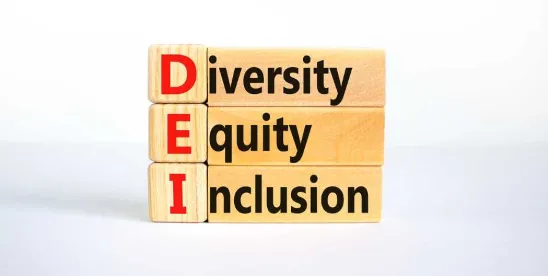The recent news that Trump rescinded the executive order issued six days earlier against law firm Paul Weiss is a striking example of the intersections between politics, law, and business. According to Business Insider, “... since Trump's earlier order to revoke its security clearances, the law firm has lost clients” and their government contracts were put at risk. The law firm's security clearance has been reinstated after an agreement was reached with the Trump Administration.
For the legal profession, it seems to be the tip of the iceberg. Covington & Burling and Perkins Coie were issued separate executive orders on February 25 and March 6. And, on March 25 and 27, two more executive orders targeting prestigious firms were issued - Addressing Risks from Jenner & Block and Addressing Risks from WilmerHale.
Who's next? Is the White House bullying law firms over DEI practices?
These incidents are part of a broader narrative unfolding across America, where political shifts are influencing business practices, and law firms, corporations, and elected officials find themselves at the crossroads of political ideologies and corporate responsibilities. In light of these developments, there is a growing concern about the broader implications for the workplace and business ethics.
For decades, DEI initiatives have functioned as guardrails in the corporate world, ensuring fair treatment in hiring, promoting inclusivity, and fostering environments where bias is actively mitigated. These practices, designed to level the playing field, were never about special advantages. Instead, they emphasized fairness—hiring and promoting the right person for the right job, regardless of their background.
Corporate America in the pre-DEI era was a very different place, often characterized by unchecked biases, discrimination, and exclusion. Although we’ve made significant progress, there are individuals and organizations that still foster a negative professional culture.
Pressure on law firms to drop DEI practices comes amid broader efforts to scale back DEI across corporate America, including sectors that have seen significant benefits from inclusive hiring. According to Business Insider, “... companies like Walmart, Meta, and Lowe's have all rolled back their DEI programs.”
The erosion of protections that have improved workplaces over the past 20 years will reverse much of the progress made over the past few decades - but will not erase it. There are too many people—managers, employees, customers, investors—who believe in the practice, whether supported by policy or not.
And, these protections have not only created safer, more inclusive environments but have also contributed to better business outcomes. Diverse teams, after all, produce more innovative solutions, offer broader perspectives, and serve diverse client bases more effectively. And, even with DEI in place, many corporations misbehave, particularly under the guise of "business as usual."
Employees are the lifeblood of any organization. Creating a happy, productive, and safe work environment is essential to the success of any company. DEI initiatives—and a movement toward a safe, fair workplace—have been an essential part of fostering these environments, ensuring that all employees have the opportunity to succeed, regardless of their background or company culture.
However, if companies are allowed to abandon these initiatives, I fear that we will see a return to the corporate cultures of the past, rife with discrimination, exclusion, bias and bullying.
“In the words of William Edward Demming, ‘a bad system will always beat a good person’," said Sharon Mahn, Esq., a leading legal recruiter and workplace expert. “Equality in the workplace means ensuring that everyone, regardless of their background or characteristics, has the same opportunity and is treated fairly.”
Even with DEI and legal protections in place, some corporations seem to behave badly. Without these checks and balances, this type of behavior will become more widespread.
The intersection of politics and law in business is unavoidable. Political decisions, such as Trump’s executive orders, can have wide-reaching effects on corporate practices, and law firms are forced to make very difficult decisions for the sake of multiple stakeholders. Legal structures, on the other hand, provide the mechanisms for enforcing fairness.
When politics and law fail to align with business ethics, the consequences for employees and organizations alike can be catastrophic.
The opinions expressed in this article are those of the author and do not necessarily represent those of The National Law Review.




 />i
/>i

